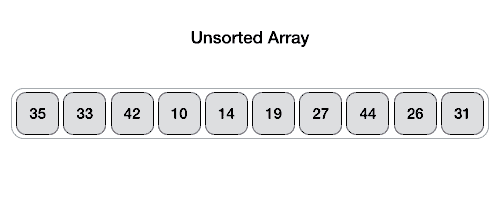QuickSort in C\C++ (Algorithm, Pseudocode and output)
QuickSort
Hy guys welcome to Another tutorial of Sorting Algorithms. In this tutorial, you will learn about QuickSort and it's programming both in C and c++
QuickSort is a popular sorting algorithm that is often faster in practice compared to other sorting algorithms. It utilizes a divide-and-conquer strategy to quickly sort data items by dividing a large array into two smaller arrays. A large array is partitioned into two arrays one of which holds values smaller than the specified value, say pivot, based on which the partition is made and another array holds values greater than the pivot value.
QuickSort partitions an array and then calls itself recursively twice to sort the two resulting subarrays. This algorithm is quite efficient for large-sized data sets as its average and worst-case complexity are of Ο(n2), where n is the number of items.
Partition in QuickSort
Following animated representation explains how to find the pivot value in an array.

The pivot value divides the list into two parts. And recursively, we find the pivot for each sub-lists until all lists contain only one element.
QuickSort Pivot Algorithm
Based on our understanding of partitioning in Quicksort, we will now try to write an algorithm for it, which is as follows.
Step 1 − Choose the highest index value as pivot Step 2 − Take two variables to point left and right of the list excluding pivot Step 3 − left points to the low index Step 4 − right points to the high Step 5 − while value at left is less than pivot move right Step 6 − while value at right is greater than pivot move left Step 7 − if both step 5 and step 6 does not match swap left and right Step 8 − if left ≥ right, the point where they met is new pivot
QuickSort Pivot Pseudocode
The pseudocode for the above algorithm can be derived as −
function partitionFunc(left, right, pivot) leftPointer = left rightPointer = right - 1 while True do while A[++leftPointer] < pivot do //do-nothing end while while rightPointer > 0 && A[--rightPointer] > pivot do //do-nothing end while if leftPointer >= rightPointer break else swap leftPointer,rightPointer end if end while swap leftPointer,right return leftPointer end function
Quicksort Algorithm
Using pivot algorithm recursively, we end up with smaller possible partitions. Each partition is then processed for quicksort. We define a recursive algorithm for quicksort as follows −
Step 1 − Make the right-most index value pivot Step 2 − partition the array using pivot value Step 3 − quicksort left partition recursively Step 4 − quicksort right partition recursively
Quicksort Pseudocode
To get more into it, let see the pseudocode for quicksort algorithm −
procedure quickSort(left, right) if right-left <= 0 return else pivot = A[right] partition = partitionFunc(left, right, pivot) quickSort(left,partition-1) quickSort(partition+1,right) end if end procedure
QuickSort Implementation in C
Output :
Sorted array:
1 5 7 8 9 10 QuickSort Implementation in C++
Output :
$g++ -o main *.cpp
$main
Sorted array:
1 5 7 8 9 10



Online marketing is the method of receiving greater
ReplyDeletepositioning in the organic search results of Google.com, Yahoo and also MSN.
The search engines that matter one of the most are actually Google.com along
with a 62% advertising and marketing allotment Yahoo along with twenty% and MSN
drifting about along with approximately 10% in market reveal 'that suggests the internet search engine you need to pick
is actually Google.com cause Google clearly has
the highest possible percent of folks are actually
exploring on the net.